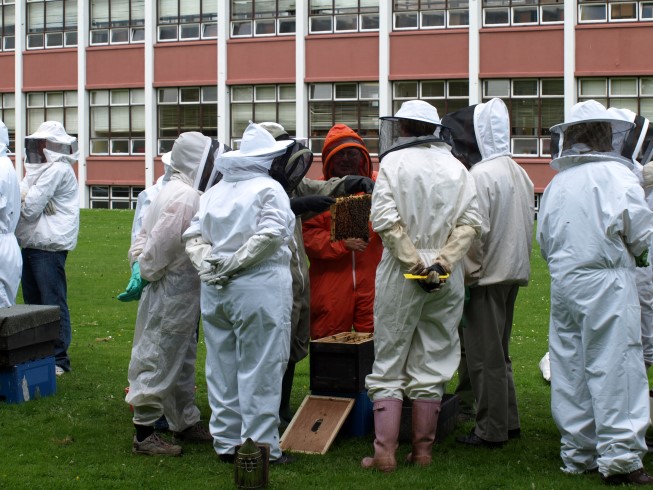Research at the University of Reading in the UK has found that Europe has 13.4 million too few honeybee colonies to properly pollinate its crops. However, the research noted Ireland is one of the best-performing countries recording 90 per cent capacity to supply the demands for national pollination services.
It is certainly encouraging to see the Irish bee population in such healthy state given that recent research at Trinity College Dublin showed that bees contribute almost €4m to the Irish economy each year, simply by improving seed production in crops of oilseed rape.
The positive Irish compares favourably to worrying results in the UK were there are only sufficient bee colonies to service 25 per cent of the country’s needs.
Other countries with insufficient bee populations include France, Germany and to a lesser extent Spain.
The discovery, made by scientists at the University’s Centre for Agri-Environmental Research, shows that demand for insect pollination is growing five times as fast as the number of honeybee colonies across Europe as farmers grow more insect-pollinated oil crops, such as oilseed rape and sunflowers, and fruit.
Researchers, led by Professor Simon Potts at the University of Reading, compared the numbers of honeybee colonies to the demand for pollination services across 41 European countries, and mapped the changes between 2005 and 2010.
The problem was found to be particularly acute in Britain, which has only a quarter of the honeybees it needs to pollinate crops. In total Europe as a whole only has two thirds of the honeybee colonies it needs, with a deficit of more than 13.4 million colonies.
Researchers say the findings suggest that agriculture in many countries growers are increasingly reliant upon wild pollinators, such as bumblebees, solitary bees and hoverflies. However, Europe still lacks coherent environmental and agricultural policies to protect these insects’ habitats.
Dr Tom Breeze, who conducted the research published this week said: “This study has shown that EU biofuel policy has had an unforeseen consequence in making us more reliant upon wild pollinators.
“The results don’t show that wild pollinators actually do all the work, but they do show we have less security if their populations should collapse.”
Professor Potts added that: “This new research provides yet more evidence of the need for greater protection of our wild pollinators, the unsung heroes of the countryside, upon whom humans depend so closely for our food supply.
“At the moment there is disconnection between agricultural and environment policies. Farmers are being encouraged to grow crops which are dependent on insect pollinators, yet they do not get enough credit for helping the insects they are increasingly reliant upon.
“We need a proper strategy across Europe to conserve wild bees and pollinators through habitat protection, agricultural policy and farming methods – or we risk big financial losses to the farming sector and reduced food security.”
